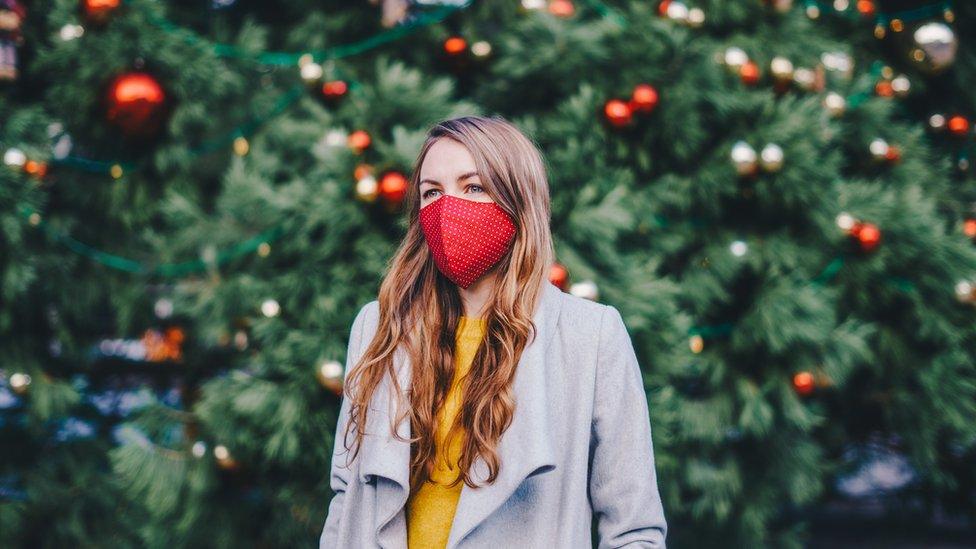Covid: We'll throw everything at booster campaign, says PM
- Published
- comments
Watch: The prime minister says new Covid rules are not a massive overhaul to general life
The UK "will throw everything" at the expanded booster jab rollout in the wake of the Omicron variant of coronavirus, Boris Johnson has said.
But the PM insisted there was no need to change the overall guidance on "how people should be living their lives".
Earlier Dr Jenny Harries, head of the UK Health Security Agency, said people should not socialise "when we don't particularly need to".
Meanwhile masks must now be worn in shops and public transport in England.
A total of 22 cases of the new coronavirus variant have so far been confirmed in the UK. Thirteen are in England - in the East Midlands, the east of England, London and the North West.
Nine cases are in Scotland and all appear to have come from a single event on 20 November, First Minister Nicola Sturgeon said.
South Africa was the first country to identify the new variant, and reported it to the World Health Organization on 24 November.
Speaking outside a vaccine centre in north London earlier today, Mr Johnson said it is "overwhelmingly likely" booster jabs can give a "lot of protection against all types of the virus", adding it is crucial for everybody to get the additional dose when eligible.
He added: "We've no doubt at all that the NHS, all the volunteers, the Army, everybody can rise to the challenge. Is it going to be hard work? Yes it is, but I know people can do it."
Booster jabs are to be offered to all over-18s in the UK and children aged 12 to 15 will be invited for a second jab, as part of a major expansion of the vaccine programme.
At a No 10 press conference the prime minister announced that the aim is to offer all adults in England over 18 a booster jab by the end of January 2022, with people becoming eligible for a booster at least three months after their second dose.
That means 14 million more adults have now become eligible for a booster in England alone, Mr Johnson said.
Jabs will be rolled out at 1,500 community pharmacy sites and extra hospital hubs in England and some 400 military personnel will work with the "jabs army of volunteers", he announced.
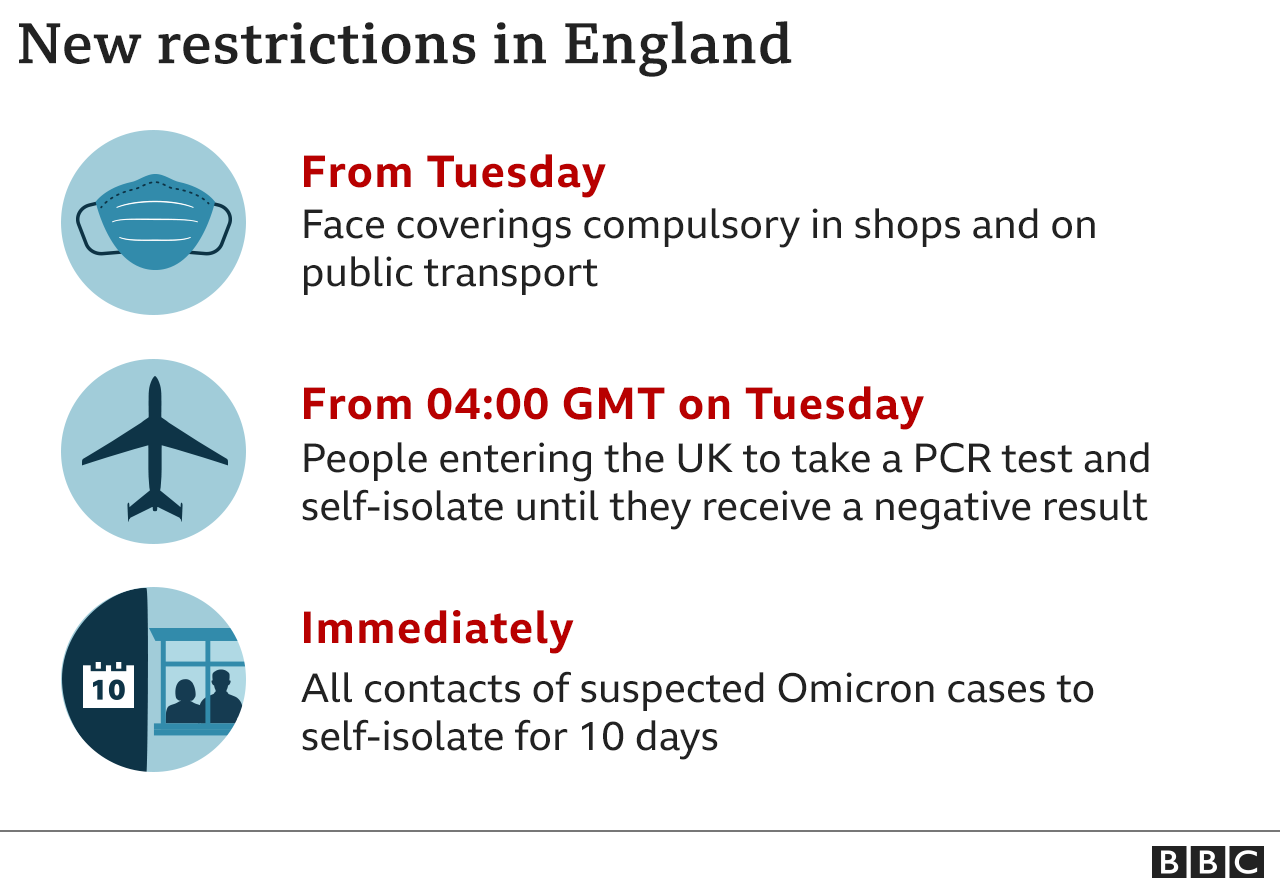
People arriving in the UK from abroad will also now have to take a PCR test and self-isolate until they receive a negative result.
Earlier Dr Jenny Harries, the head of the UK Health Security Agency - the body which replaced Public Health England - suggested people should reduce social contacts in the run up to Christmas.
When asked about her comments, the prime minister said she was right and people should continue to take "normal precautions", but said a change in the guidance wasn't necessary
"We don't see anything to suggest that we need to go, for instance, to Plan B," he said, referring to tougher curbs in England.
However, Mr Johnson added taking "particular precautions" against Omicron were needed until experts know "exactly what kind of a threat it may present".
Some Conservative backbench MPs questioned Dr Harries' advice during a debate on face masks in the House of Commons, with some asking on whose authority she was speaking given her suggestion was not government policy.
Meanwhile, Wales' health minister Eluned Morgan said people should take the "threat" of socialising indoors with others at Christmas seriously.
BBC's Laura Foster explains how to wear your mask correctly and help stop coronavirus spreading
The new rules on face coverings bring England in line with Scotland, Wales and Northern Ireland, where they are already mandatory on public transport and for many indoor areas.
Newly-published guidance, external says they should be worn in locations including shops, shopping centres, posts offices, banks, hairdressers and food takeaways, as well as on public transport.
Although the change does not require people in England to wear coverings in pubs and restaurants, they are required in hospitality venues elsewhere in the UK in some circumstances.
Police in England say they will work "in partnership with relevant business owners and their staff" to ensure people comply with the new face coverings rules.
As a last resort people can be fined £200, reduced to £100 if paid within 14 days.
Another change, which has already come into effect, requires all contacts of suspected Omicron cases to self-isolate for 10 days, even if they are fully vaccinated.

THE SLEEPING FORECAST: Get cosy with our winter playlist
WHAT IS RACHEL RILEY'S EMBARRASSING HABIT?: Joe Lycett finds out in 'It's Not What You Know'

Related topics
- Published30 November 2021
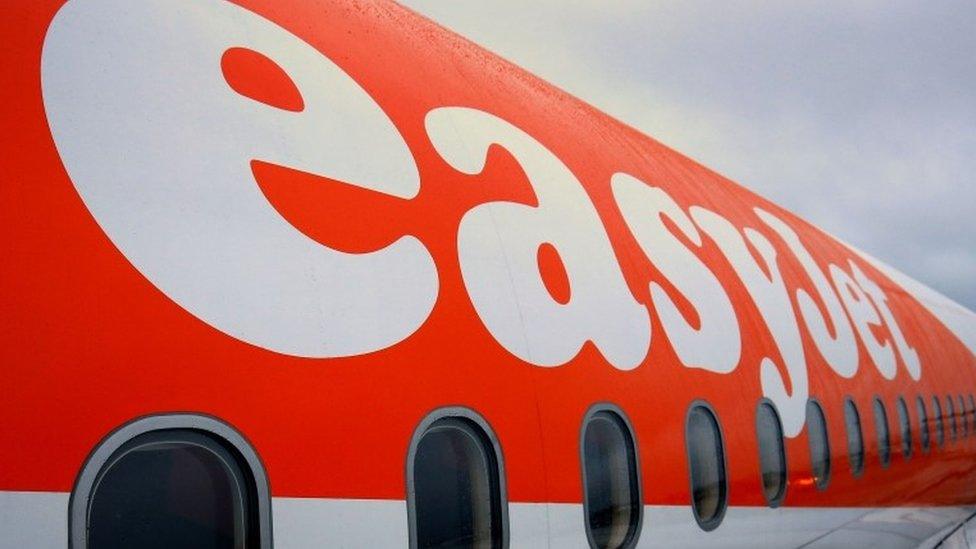
- Published30 November 2021
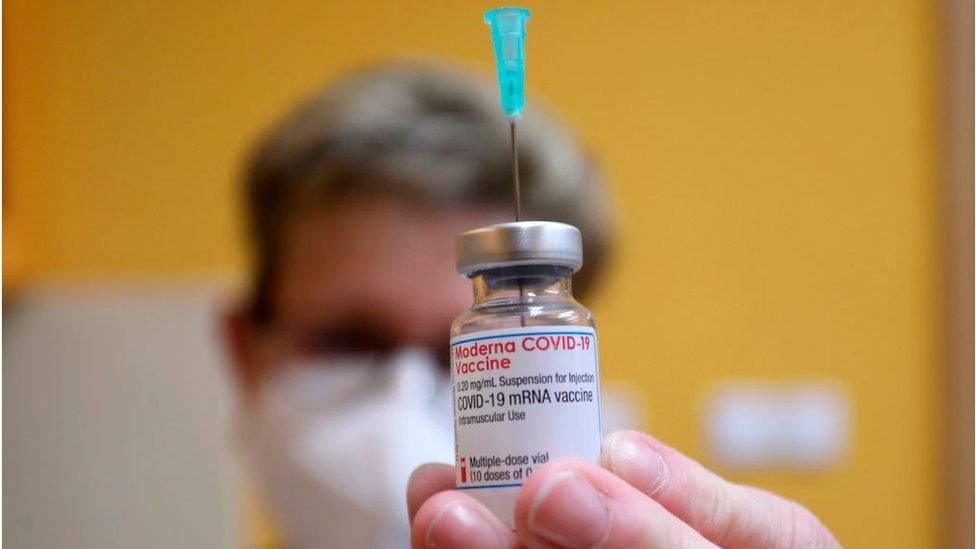
- Published30 November 2021
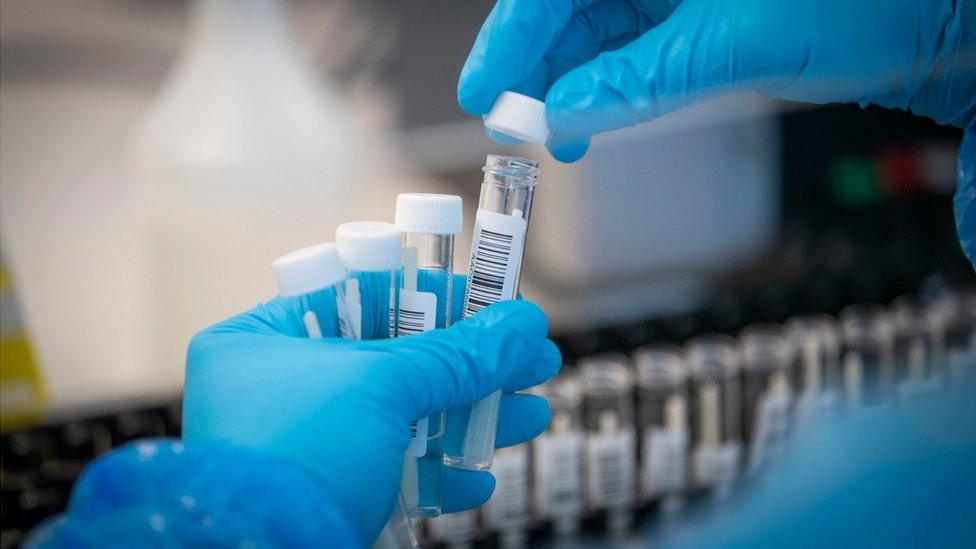
- Published1 July 2022

- Published6 December 2021
- Published2 April

- Published1 July 2022
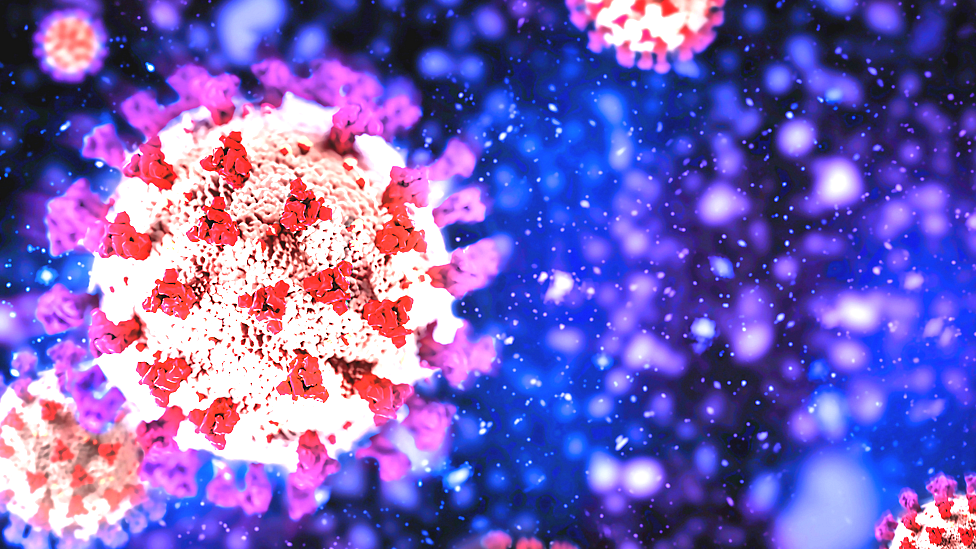
- Published4 January 2022
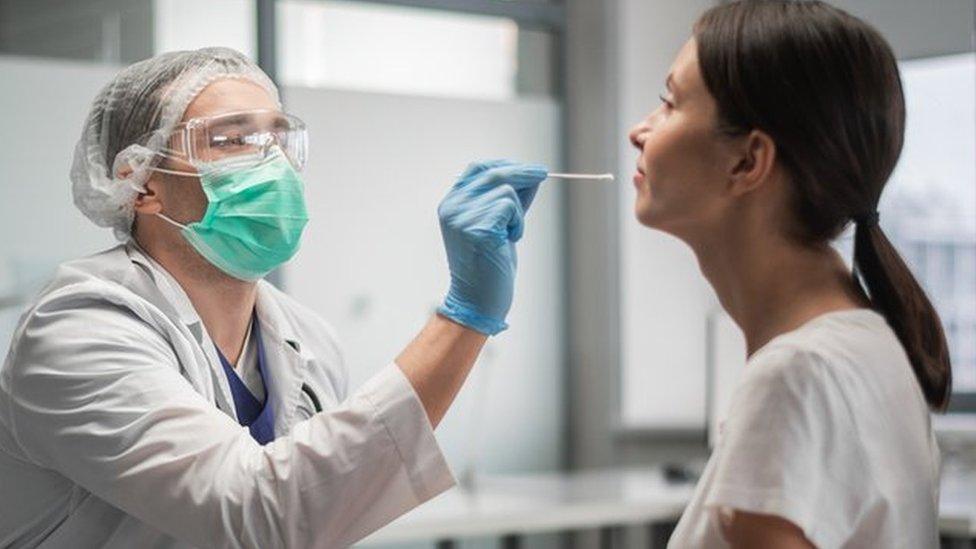
- Published29 November 2021
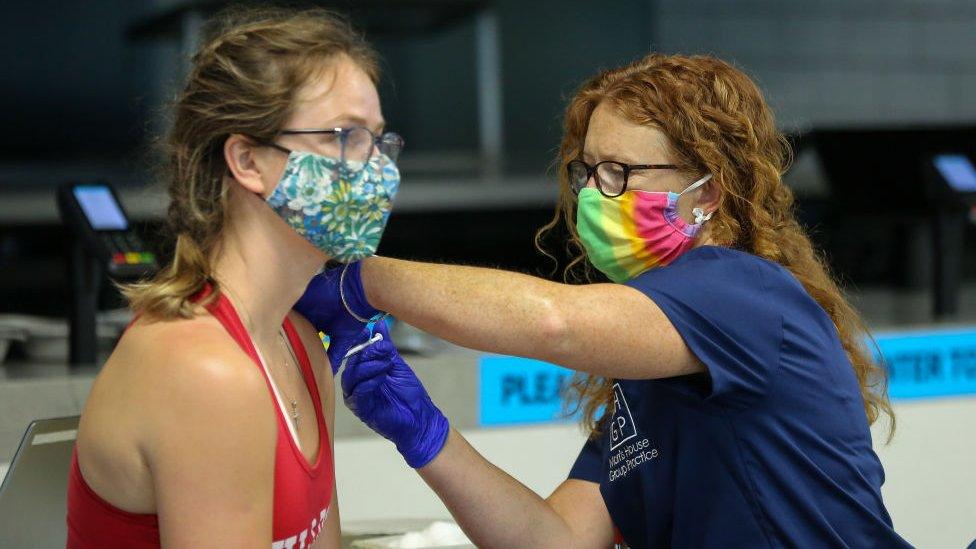
- Published28 November 2021
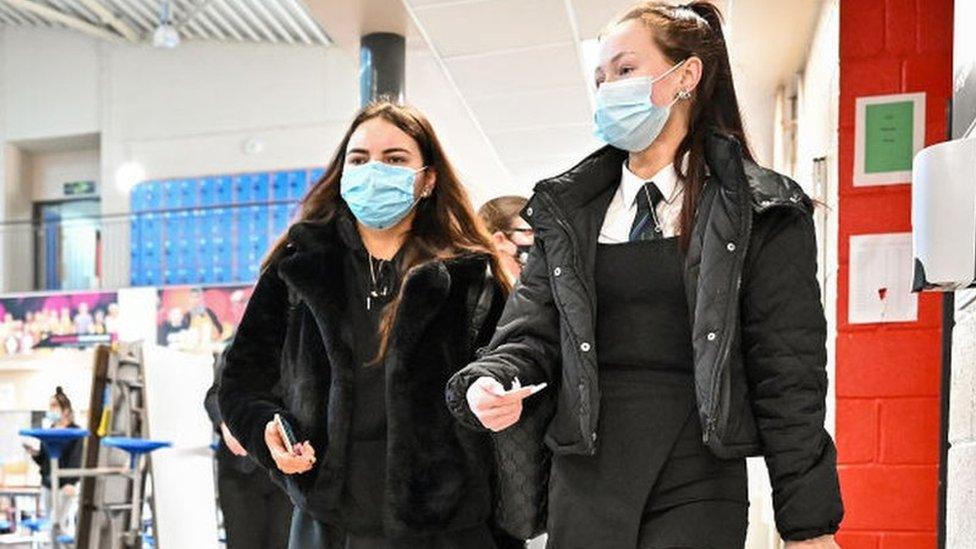
- Published28 November 2021
